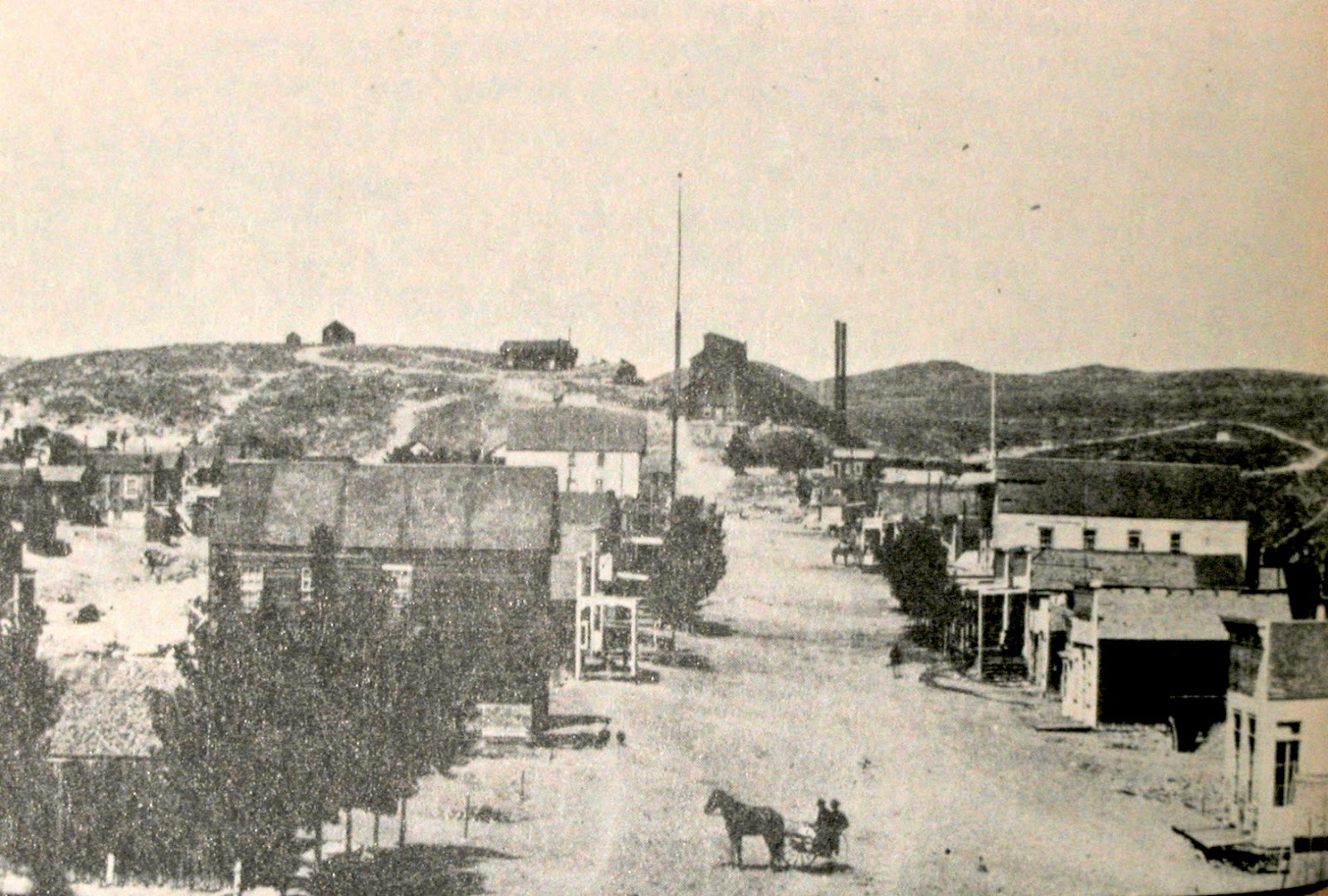I just returned from a week of skiing at Heavenly overlooking Lake Tahoe. Judging by the price of lift tickets, there’s gold on them thar hills. Warren Miller used to say your knees had only so many bends, so you might as well spend them skiing. I agree, but we needed a day to rest up after racing down slope after slope to get our money’s worth, so we took a day trip to the ghost town of Bodie, California.
 |
| Bodie, California |
If you
really want to feel a ghost town, I suggest you visit one in the dead of
winter. We had the fortune of exploring Bodie on a clear day, with no snow on
the ground, and temperatures in the mid-sixties. We had the unearthly emptiness
all to ourselves. Eerie.
 |
| Bodie General Store |
 |
| Bodie General Store |
Waterman S.
Body discovered gold at this remote location in 1859, but the real heyday for
the Bodie mining camp occurred in the
late 1870s and early 1880s. According to the guidebook, “By 1879 Bodie boasted
a population of about 10,000 and was second to none for wickedness, badmen, and
‘the worst climate out of doors.’ One little girl, whose family was taking her
to the remote and infamous town, wrote in her diary: ‘Goodbye God, I’m going to
Bodie.’”
 |
| Restrooms closed for the winter, so we had to go native |
I like ghost
towns, especially when allowed to explore on my own. You can learn a lot about
how people lived in bygone days. Bodie has fairly intact homes, churches, a general
store, school, barber’s shop, fire house, a hotel with restaurant, and saloons aplenty.
The gymnasium equipment includes a punching bag, pull-up bar, weights, and
other paraphernalia. One of the biggest and most impressive buildings is a miner’s
union hall. All this with nary a ranger in sight ... at least not one away from
the comfort of his vehicle in the parking lot.
The next day
we returned to Heavenly. Unfortunately, we didn’t have this particular mountain
to ourselves. Lots of people, loads of people, all zipping around unaware of
the poor ghosts eager for callers just a couple of hours down the road.
My favorite ghost town is Candelaria, Nevada, the opening location for The Shopkeeper. In the book, I called the town Pickhandle Gulch, which was actually a suburb of Caldelaria.
 |
| Candelaria, Nevada (aka Pickhandle Gulch) |
 |
| Author photo of Candelaria |




